From literature to theater to real life, the most memorable films in Hollywood are typically inspired by books, plays, music, and genuine tales. Since the dawn of film, the skill of adaptation has been crucial in transforming textual works into engaging visual storytelling. Translating stories from paper to the screen is a difficult process that demands skilled revision.
The most talented screenwriters know how to rethink and rework source material for new media. This entails understanding what to alter or change while keeping the original’s essential spirit. Timeless novels have been adapted into films, stage musical numbers have been adapted for the screen, and history has been twisted into riveting drama.
These adapted masterpieces, spanning decades of filmmaking, succeeded in bridging the gap between the written word and the visual. Scripts adapted from other sources have had an unequaled effect on film, from extravagant costume plays to cultural touchstones. Join us as we countdown the 25 best-adapted scripts of all time, as voted on by the Writers Guild of America – the stories that most effectively made the visionary leap from paper to screen.
- What is an Adapted Screenplay?
- What makes a great Adapted Screenplay?
- What Are the Top 25 Best Adapted Screenplays of All Time?
- 01. Gone with the Wind (1939)
- 02. The Wizard Of Oz (1939)
- 03. To Kill a Mockingbird (1962)
- 04. The Godfather (1972)
- 05. One Flew Over the Cuckoo’s Nest (1975)
- 06. The Shining (1980)
- 07. Schindler’s List (1993)
- 08. The Shawshank Redemption (1994)
- 09. Forrest Gump (1994)
- 10. Fight Club (1999)
- 11. The Lord Of The Rings (2003)
- 12. Brokeback Mountain (2005)
- 13. No Country for Old Men (2007)
- 14. The Social Network (2010)
- 15. The Descendants (2011)
- 16. Harry Potter (2001 To 2011)
- 17. The Hunger Games (2012)
- 18. Arrival (2016)
- 19. A Star is Born (2018)
- 20. Little Women (2019)
- 21. Jojo Rabbit (2019)
- 22. The Irishman (2019)
- 23. Nomadland (2020)
- 24. Ma Rainey’s Black Bottom (2020)
- 25. Dune (2021)
- What makes Adapted Screenplays different from Original Screenplays?
- Evolution of Adapted Screenplays
- Conclusion
What is an Adapted Screenplay?
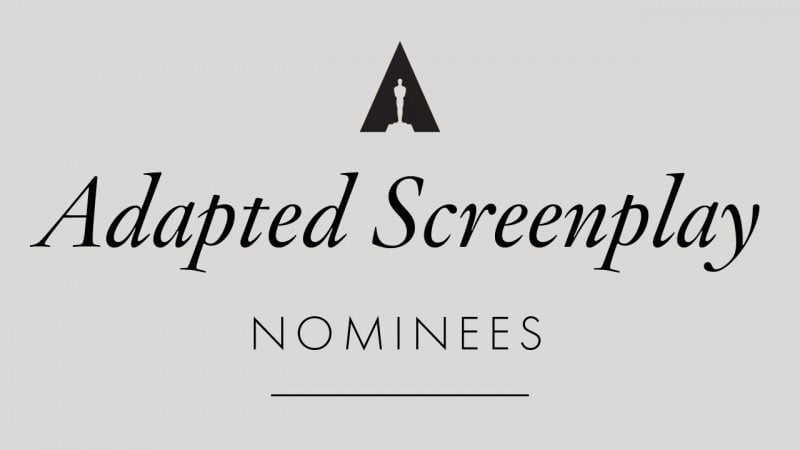
Adapted screenplays adapt existing source material, such as books, short stories, plays, television series, or even real-life events, into films or television productions. It is a difficult craft that needs authors to convert narratives into audiovisual formats while keeping the substance and vision of the original.
The process entails carefully knowing the source material to create wise cuts, alterations, and adaptations for the new medium of film. To advance the visual story while preserving the author’s voice, dialogue, plot, characters, and themes must be modified. The framework has been rewritten into screenplay format, complete with acts and scenes. Visual descriptors are used instead of exposition to show rather than tell.
The Academy Award for Best Adapted Screenplay honors writers who have effectively transitioned from paper to screen. Many classic films, like The Godfather, One Flew Over the Cuckoo’s Nest, No Country for Old Men, and others, were based on adapted works. An adapted script, like an original one, needs rigorous drafting, intelligence, and creativity. The majority of the creative effort is done in the pre-writing phase when the original material is thoroughly studied before commencing the adaptation process.
Adapted screenplays have enhanced cinema for decades by bringing treasured stories to life via the abilities of brilliant authors, whether updating a classic novel or bringing a true-life story to the big screen.
What makes a great Adapted Screenplay?
A fantastically adapted screenplay masterfully transforms the spirit of the original material into cinematic language while emerging as a remarkable work in its own right.
It is critical to stay faithful to the core of the original tale. The adaptation should reflect the essence of the story, its ideas, characters, and setting while utilizing the film’s visual capacity to show rather than tell. Dialogue and situations are carefully constructed to properly push the action on screen.
Nuanced, interesting personalities who connect with viewers are essential. Characters are dimensionalized in organic ways to truly come alive on screen while remaining true to their original representations. Through language and actions, their emotional journeys, connections, and defects are depicted cinematically.
The screenplay draws spectators into its universe with its great structure, pace, and tonal consistency. It evokes a wide range of emotions while leaving a powerful and long-lasting impression.
An outstanding adapted screenplay keeps the spirit of the source material as it leaps to life on the screen by artistically respecting the original work while embracing the narrative potential of the film. These adapted works expertly cross the divide between page and screen, both praising and recreating the original.
What Are the Top 25 Best Adapted Screenplays of All Time?
Here we explore a selection of timeless and celebrated adapted screenplays that have cemented their place as classics throughout the years, some of the most successful and best-adapted screenplays in film history, and a significant challenge to screenwriters since they require skillfully translating cherished literary works into cinematic form while remaining true to the originals.
01. Gone with the Wind (1939)
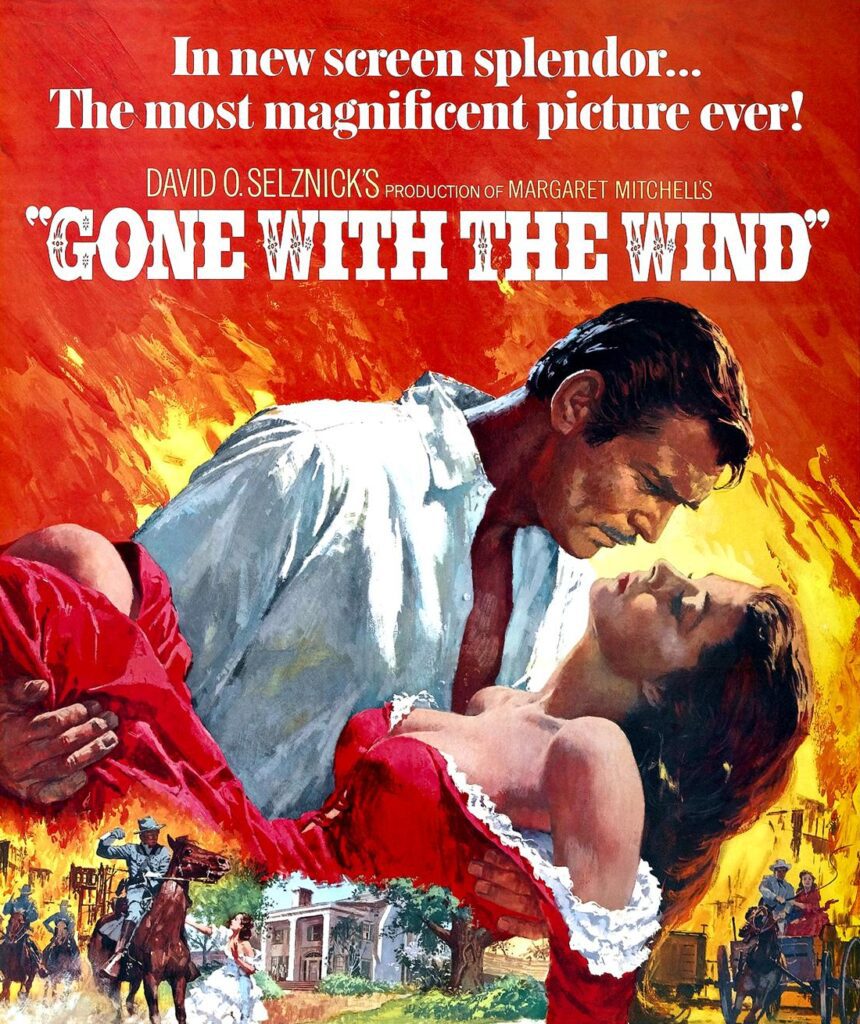
One of the most lauded film adaptations in Hollywood history, Gone with the Wind skillfully turned Margaret Mitchell’s expansive 1936 novel into a timeless work of literature. The epic historical drama, which debuted in 1939, was immediately hailed as a masterpiece of film and a sensation in popular culture.
Screenwriter Sidney Howard had to compress crucial events and imaginatively adapt the 1000+ page novel into a compelling script while adhering to the book’s expansive plot. He expertly encapsulated the spirit of the complicated characters, maintaining their nuance while adapting them for the film. Famous protagonists Scarlett O’Hara and Rhett Butler were wonderfully brought to life by Vivien Leigh and Clark Gable.
The movie, which has a running period of about 4 hours, immerses audiences in the high-stakes drama of the South during the Civil War. The revised screenplay skillfully juxtaposes a high-society romance with the devastation of war through tense fighting scenes and intense dialogue. The viewpoints on love, loss, survival, and the demise of the antebellum way of life were all maintained.
The script’s razor-sharp wording expertly portrays the character’s innermost traits. One of the most famous movie quotes ever is the classic “Frankly, my dear, I don’t give a damn” phrase by Rhett Butler. The movie won eight Oscars in a tight race, including Best Picture and Best Screenplay. Over 80 years later, it continues to be remembered as a cinematic masterpiece.
02. The Wizard Of Oz (1939)
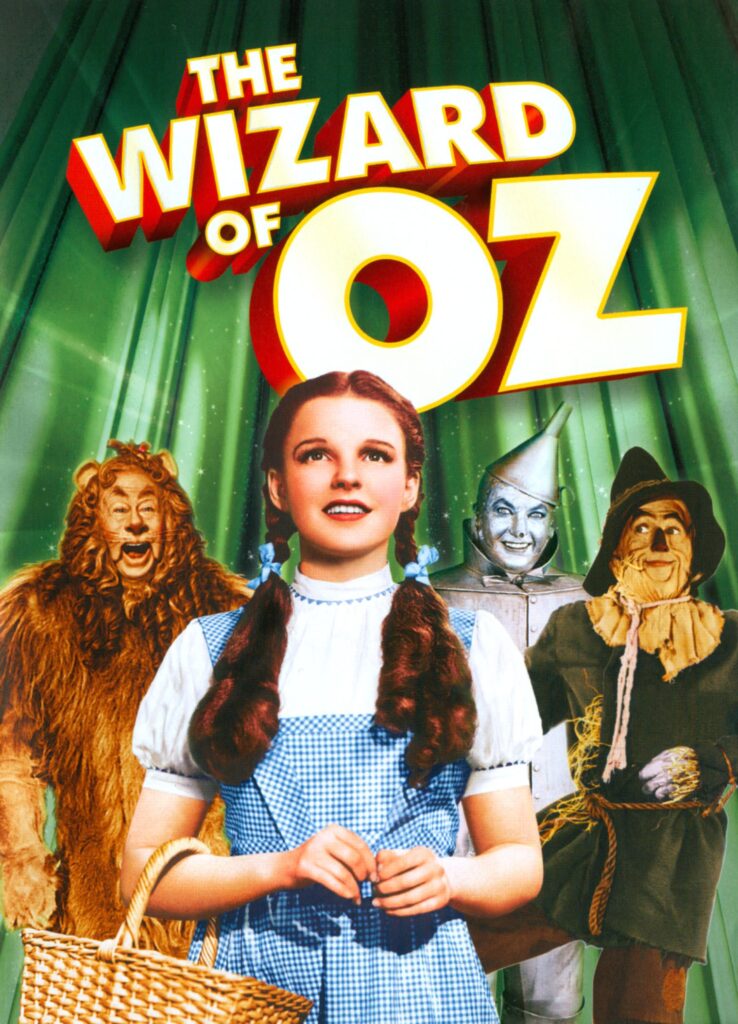
The Wizard of Oz, Victor Fleming’s 1939 musical fantasy film, skillfully turned L. Frank Baum’s 1900 story into a legendary cinematic extravaganza that has enthralled generations. While remaining true to the wonderful plot of the book, the film’s screenplay expertly adapts it into an appealing cinematic adventure replete with unforgettable characters, melodies, and technological wonders.
Dorothy’s voyage to the beautiful Land of Oz is translated with passion and emotion while keeping the novel’s timeless themes of self-discovery, appreciation for home, and the power of friendship. Judy Garland’s portrayal of Dorothy is delightful, perfectly expressing her innocence, perseverance, and emotional maturation. Her performance of the moving ballad “Over the Rainbow” became a movie classic.
A beloved array of characters join Dorothy on her quest. Ray Bolger’s loose-limbed Scarecrow, Jack Haley’s gentle Tin Man, and Bert Lahr’s bombastic Cowardly Lion were all spot-on in capturing their endearing friendship and individual personalities. Frank Morgan expertly assumed the Wizard’s various guises.
When Dorothy arrives in Oz, the picture pioneers technological breakthroughs such as the change from sepia tone to brilliant three-strip Technicolor. Color was used to immerse viewers in Oz’s magnificence and hazards, such as the rich emeralds of Emerald City and frightening poppy fields. The colorful fantasy world is completed with innovative special effects, makeup, and costumes.
03. To Kill a Mockingbird (1962)
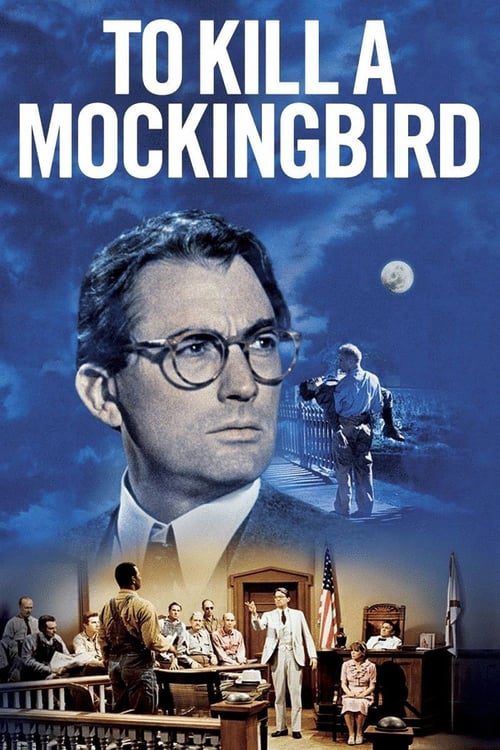
To Kill a Mockingbird, which was released in 1962, is considered one of the most influential book-to-film adaptations. The film masterfully adapts Harper Lee’s Pulitzer Prize-winning novel to the screen, immersing audiences in racial injustice in the American South during the 1930s. Its themes of morality, conscience, and socioeconomic inequity continue to ring true decades later.
At the heart of the plot is Atticus Finch, a small-town Alabama lawyer with towering morals. When called to defend a black man wrongly convicted of rape, Atticus puts facts above preconceived notions. His search for justice reveals the community’s persistent racial prejudices.
The Oscar-winning screenplay, adapted by Horton Foote, captures the core of the novel. The characters come to life as a result of their moral problems and touching relationships. Scout Finch, the young narrator, witnesses the intricacies of the adult world as she matures. Her point of view adds credibility to the story’s honest portrayal of truth, violence, and race relations.
To Kill a Mockingbird is still regarded as a film classic that addresses racial injustice with honesty and compassion. Its ageless message of integrity and decency in the face of discrimination is still applicable today. The video reminds viewers that social development requires individuals who are ready to speak up for justice when it is most needed.
04. The Godfather (1972)
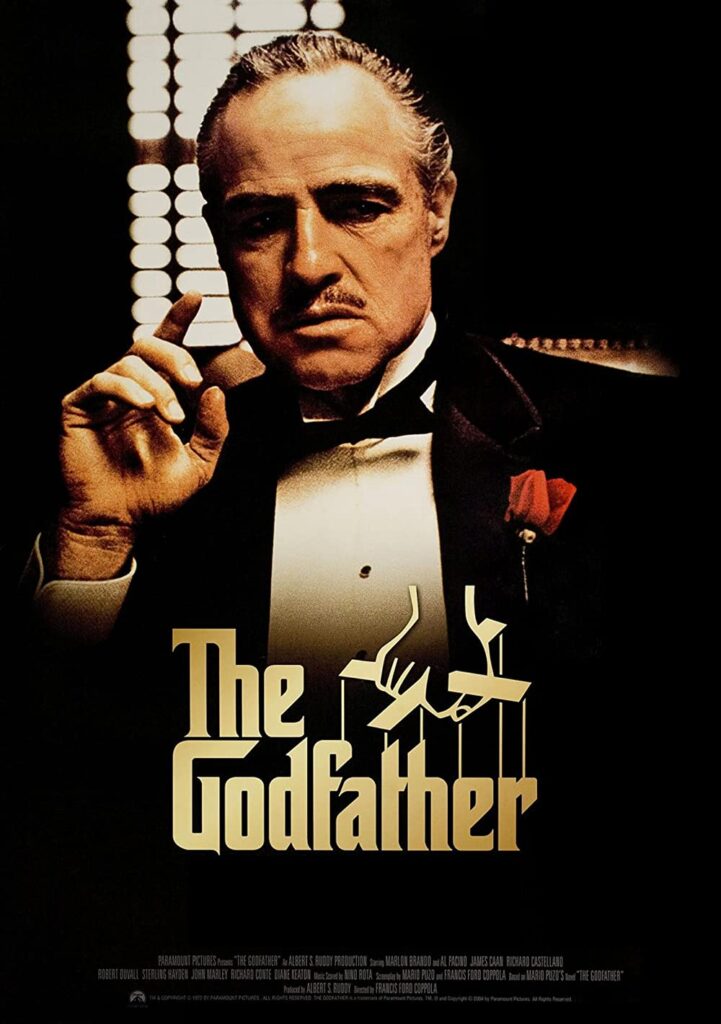
The Godfather, Francis Ford Coppola’s 1972 criminal tale, remains a towering achievement in adapted scripts. The film, which was co-written with Mario Puzo and adapted from his gangster novel, expertly condenses and elevates the broad source material into an iconic movie masterpiece.
The Corleone clan, a strong mafia family led by old patriarch Vito Corleone, played with calm strength by Marlon Brando, is central to the tale. Coppola and Puzo heighten the suspense by using legendary encounters, high-stakes drama, and horrifying violence to drag his youngest son Michael, played by Al Pacino, deeper into the family’s criminal enterprise.
The script eliminates unnecessary subplots to focus on the novel’s major themes of loyalty, power, honor, and corruption. The complexities of the mafia organization are revealed through crackling banter laced with criminal codewords. Even the most violent villains are humanized with unexpected sensitivity, culminating in an operatic depiction of Michael’s progressive metamorphosis and terrible fate.
Meticulous writing and directing elevate the mafia narrative to a vast investigation of the dark side of the American Dream. Vito’s compassion and rationality, in contrast to Michael’s iron determination, create moral complications. The film received critical praise and ten Academy Award nominations, including Best Adapted Screenplay.
Over 50 years later, The Godfather remains an unrivaled cinematic accomplishment and a model for translating novels for the screen. Its superb fusion of writing, acting, and directing imprinted the Corleone saga in the popular mind, confirming the story’s position in movie history.
05. One Flew Over the Cuckoo’s Nest (1975)
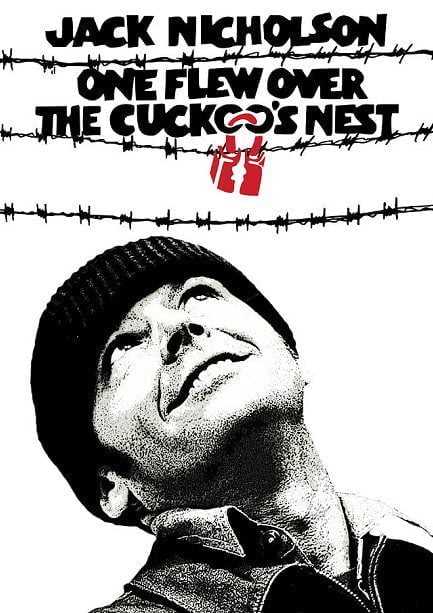
One Flew Over the Cuckoo’s Nest, directed by Milo Forman in 1975, is regarded as one of the best literary adaptations in film history. The film skillfully transformed Ken Kesey’s celebrated novel into a moving cinematic narrative, capturing the book’s rebellious spirit and vividly bringing its iconic characters to life.
The film’s central conflict is a struggle of wills between Randle P. McMurphy, played with raw charm by Jack Nicholson, and the dictatorial Nurse Ratched, played chillingly by Louise Fletcher. In the restrictive confines of a mental unit, their tight power struggle exposes themes of freedom vs control.
The novel’s complicated narration was cleverly reduced by screenwriters Lawrence Hauben and Bo Goldman into a strong cinematic story centered on McMurphy. Scenes that are artistically produced raise the tension, while the casting of real-life mental patients adds organic realism.
Nicholson and Fletcher won Oscars for their performances in Forman’s brilliant direction and tour de force acting. All five major Academy Awards were won by the film, including Best Picture, Director, Screenplay, Actor, and Actress. This solidified its position as a box office smash as well as a critical masterpiece.
Over 40 years later, One Flew Over the Cuckoo’s Nest is still regarded as the pinnacle of adapted screenplays. With naked honesty and empathy, it adapts Kesey’s counterculture classic for the big screen. McMurphy’s defiant free spirit lives on as a timeless emblem of the battle for originality in the face of crushing uniformity.
06. The Shining (1980)
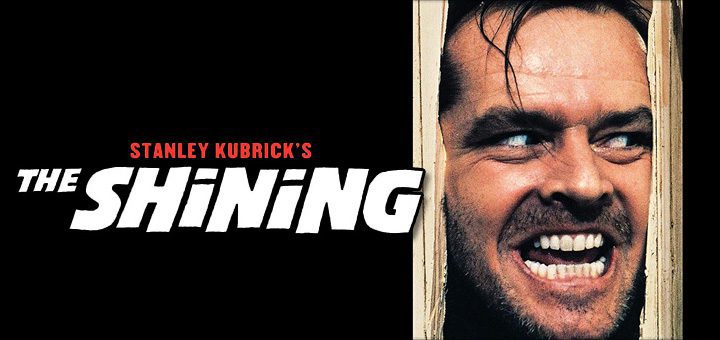
The Shining, Stanley Kubrick’s 1980 adaptation of Stephen King’s Gothic horror novel, is regarded as a defining piece of cinematic dread. Despite significant deviations from the novel, Kubrick’s remarkable vision and directing ability enhanced the plot for the screen. The film conveys the psychological collapse of a man and his family via hypnotic photography, a dark atmosphere, and great performances.
As Jack Torrance, the gloomy Overlook Hotel’s winter caretaker, Jack Nicholson is iconic. His portrayal of insanity unfolding through violent outbursts, psychotic grins, and the legendary axe-through-door “Here’s Johnny!” sequence is unsettling. Wendy, played by Shelley Duvall, is afraid and frantically attempts to protect their son Danny, played by Danny Lloyd.
Kubrick uses new camerawork, such as Steadicam tracking shots and wide-angle corridor views, to highlight the family’s anxiety and isolation. Set ideas such as the hedge maze and the creepy chamber 237 oozes with genuine dread. This visual artist manipulates space and perspective to reflect the ongoing mental disintegration.
Despite its departure from King’s novel, Kubrick’s screenplay adaptation captures the sense of terror and lunacy at the Overlook Hotel. Scenes like Danny’s haunting visions and Jack’s disintegrating hold on reality effectively create suspense. Kubrick’s reputation as a terror maestro was confirmed by the picture, which influenced horror filmmaking for centuries. The Shining still has the potential to upset and frighten people forty years later.
07. Schindler’s List (1993)
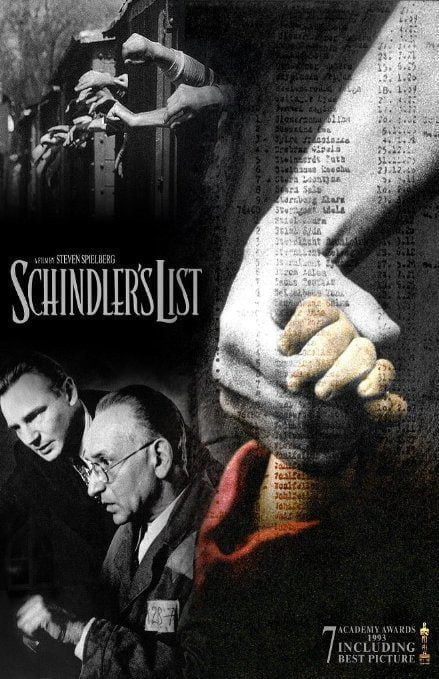
Schindler’s List, directed by Steven Spielberg in 1993, is regarded as one of the most effective and precise translations of real events into cinema. Based on Thomas Keneally’s book Schindler’s List, Spielberg and screenwriter Steven Zaillian brilliantly and devastatingly bring Oskar Schindler’s extraordinary real tale to life. The picture received widespread critical praise, seven Academy Awards, including Best Picture, and will live on in cultural memory.
Schindler’s List, shot in harsh black-and-white, immerses audiences in the horrors of the Holocaust as seen through the eyes of the Germans who perpetrated it. Schindler, who began as a war profiteer, undergoes a profound epiphany. Liam Neeson portrays his transformation into an unexpected hero who sacrifices his life and riches to save Jewish manufacturing workers from Hitler’s Final Solution.
Zaillian’s Oscar-winning writing captures the harsh violence, difficult choices, and personal moments in Nazi-occupied Poland. Spielberg chose a film largely in non-subtitled languages, with lengthy uncompromising takes on scenes of horrible misery and depravity. The end product is a masterpiece of uncompromising truth-telling and moral urgency.
Schindler’s List retains its dramatic impact and value as a monument to individual fortitude during humanity’s worst chapter some 30 years later. The film adaptation immortalizes Oskar Schindler’s awakening of consciousness as a source of inspiration – and a call to action – for future generations. Through the great force of cinema, Spielberg and Zaillian’s brilliant work commemorates the Holocaust’s victims, survivors, and heroes.
08. The Shawshank Redemption (1994)
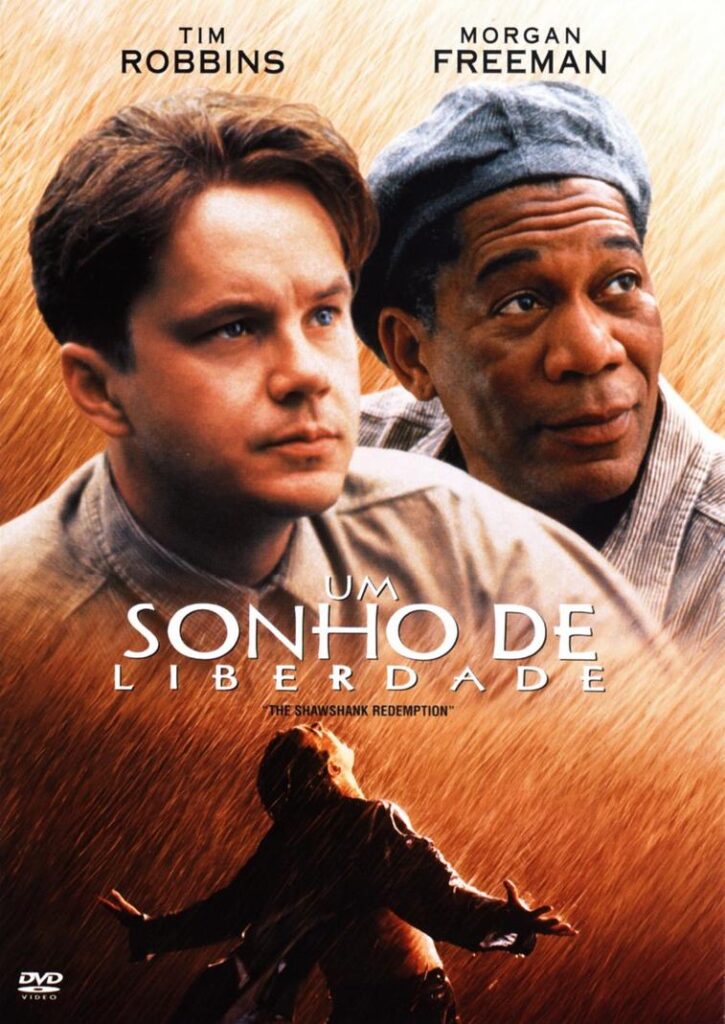
The Shawshank Redemption, directed by Frank Darabont in 1994, is an example of superb cinematic storytelling. The film, based on Stephen King’s novella Rita Hayworth and the Shawshank Forgiveness, follows inmate Andy Dufresne and fellow prisoner Red as they strive against injustice and achieve forgiveness behind bars.
Though the movie was initially a box office flop, The Shawshank Redemption grew in popularity thanks to home video and TV replays. Audiences were deeply moved by its emotional core of clinging on to hope in the darkest of circumstances. Tim Robbins delivers an unforgettable performance as the stoic Andy, who refuses to let his false murder conviction break him. Morgan Freeman is similarly effective as the worn-out lifer Red, whom Andy befriends and significantly influences.
Darabont transforms King’s novel into a sweeping investigation of freedom, compassion, and corruption. Despite being set in a jail, the film communicates a timeless and uplifting message about maintaining one’s humanity even under the most difficult circumstances. The Shawshank Redemption continues to win new fans decades later for its deep character study and unshakable heart. Its catchy phrases about optimism have entered the popular language.
09. Forrest Gump (1994)
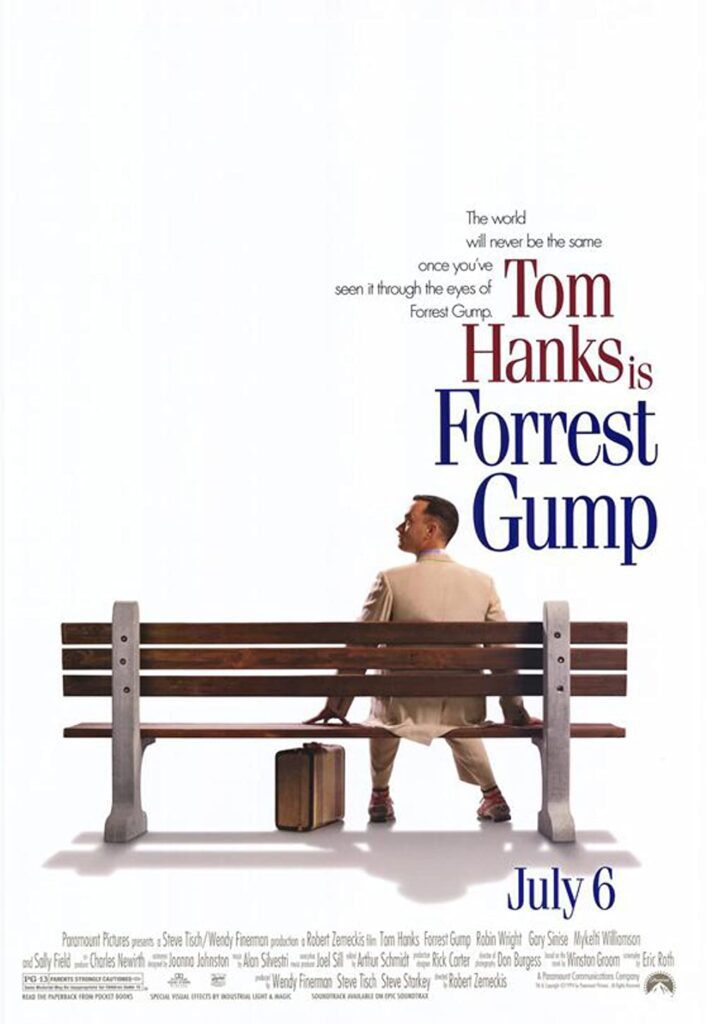
Forrest Gump, directed by Robert Zemeckis, is one of cinema’s most influential adaptations. The essence of Winston Groom’s story is skillfully translated into an impossible American epic by Eric Roth’s Oscar-winning script. The film perfectly integrates historical rigor with a feel-good narrative, charting the incredible life path of a kindhearted Alabama man against the backdrop of major twentieth-century events.
Tom Hanks’ Academy Award-winning portrayal of the titular character’s charming naivete and wisdom is at the core of Forrest Gump. Despite his low IQ, Forrest demonstrates incredible perseverance and compassion as he changes musical, athletic, and political history by chance. The narrative strikes a mix between comedy and tragedy, with filmmaker Robert Zemeckis interweaving genuine historical personalities and video into Forrest’s incredible journey.
However, the film’s ongoing popularity might be attributed to its ageless themes. As Forrest goes through love, sorrow, conflict, and peace, so does the nation. The narrative extols characteristics such as optimism, integrity, and accepting life’s unforeseen diversions. Few adaptations have so deftly melded fiction and real-life events to capture the American spirit.
With its big-hearted storyline, Forrest Gump continues to enchant both old and new audiences. The picture stands out in movie history as a celebration of living completely without prejudice or constraint – a message that speaks to people of all ages. Its excellent adaptation transformed Winston Groom’s story into a global cultural phenomenon.
10. Fight Club (1999)
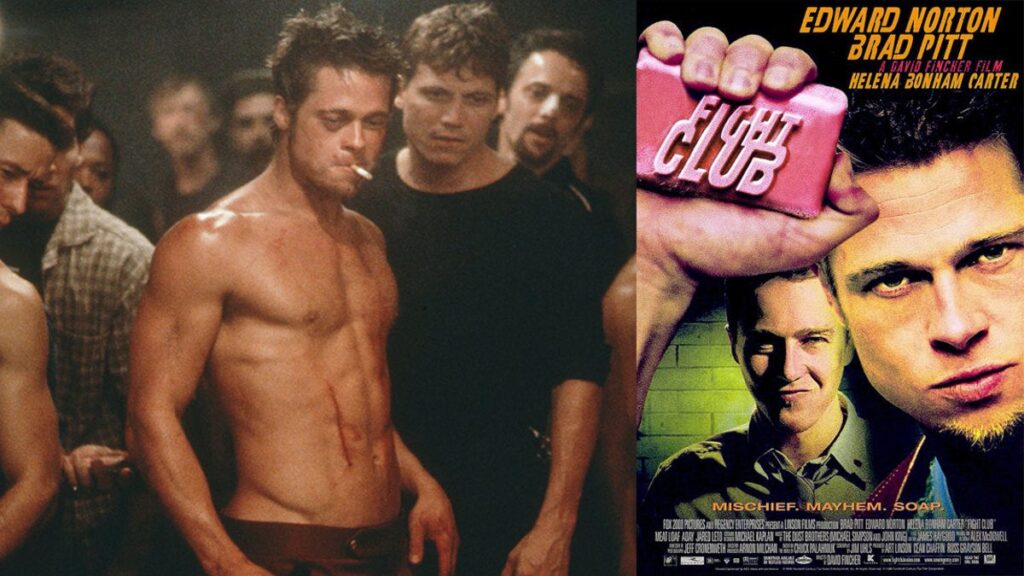
Fight Club, David Fincher’s 1999 cult favorite, is an example of a daring, unusual narrative translated for the film. Fincher’s gritty picture, based on Chuck Palahniuk’s controversial 1996 novel, brilliantly portrays the book’s cutting societal critique through dramatic images, a ragged narrator, and a twisted primary connection.
The anonymous Narrator, played by Edward Norton, is an insomniac office worker disillusioned with materialism and masculinity. He meets the charismatic Tyler Durden, played by Brad Pitt, who introduces him to the harsh, freeing world of underground fight clubs. The novel questions concepts of identity and societal control as their relationship turns into an anarchist movement.
Fight Club incorporates novel methods such as a twisted, untrustworthy narrator that distorts reality. The spectator is drawn into anarchy when the fourth wall is broken and visceral imagery is used. Despite conflicting reviews, the film went on to become a cult classic, studied for its take on toxic masculinity and resistance to corporate dehumanization.
Fight Club is still regarded as a major film of the late 1990s counterculture movement. Its daring, contentious adaptation of Palahniuk’s novel resulted in an engrossing, thought-provoking film experience that has left an indelible mark on pop culture. Fight Club became an enduring icon because of Fincher’s daring vision.
11. The Lord Of The Rings (2003)
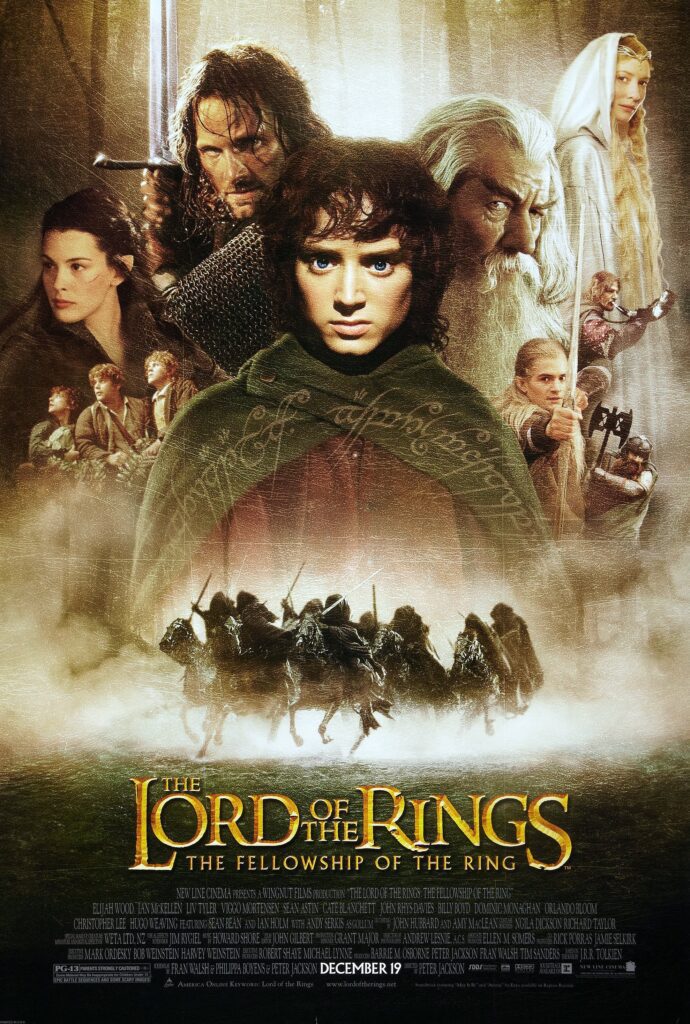
The Lord of the Rings: The Return of the King, directed by Peter Jackson, was a triumphant climax to the popular film trilogy. The film, based on J.R.R. Tolkien’s classic works, won 11 Academy Awards, including Best Picture and Best Director for Jackson.
The film follows the adventure of hobbit Frodo Baggins, played by Elijah Wood, through Middle-earth’s fatal quest to destroy the all-powerful One Ring. Return of the King enthralls with its epic size and emotional weight, set in beautifully created realms filled with jaw-dropping landscapes, monsters, and action.
The film is renowned for its visual magnificence, which transports spectators to Tolkien’s world, and it masterfully weaves meaningful themes of friendship, sacrifice, and good versus evil that reverberate beyond generations. The outstanding ensemble cast, which includes Ian McKellen, Viggo Mortensen, and Andy Serkis as Gollum, delivers unforgettable performances that are augmented by ground-breaking motion capture.
Many consider The Lord of the Rings: The Return of the King to be one of the best fantasy films ever created, and its excellent narrative has had a significant impact on popular culture. Its worldwide appeal and emotional power ensured that it would be remembered as a cherished, colossal cinematic masterpiece.
12. Brokeback Mountain (2005)
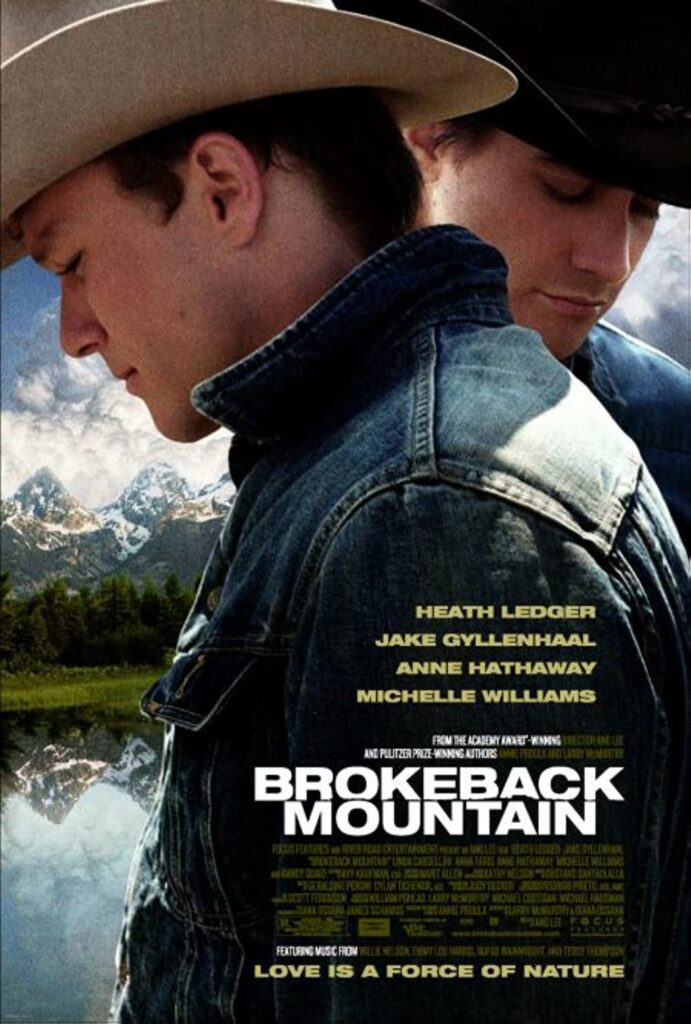
Brokeback Mountain, Ang Lee’s 2005 romantic movie, is regarded as a revolutionary cinematic depiction of forbidden love. Adapted from Annie Proulx’s renowned short tale, the film explores the secret romance of two cowboys, expertly brought to life by Heath Ledger and Jake Gyllenhaal. Screenwriters Larry McMurtry and Diana Ossana expertly adapt the literary source material into an emotional analysis of yearning, grief, and cultural constraints.
Set against the majestic views of 1963 Wyoming, the film follows the two men as they form an emotional friendship during a distant cattle drive. They are unable to let go of their simmering desire and stolen moments together as they return to their respective personal lives. Through brief yet beautiful speech and delicate looks between the actors, the script conveys a lot.
Critics praised Brokeback Mountain for its delicate directing and brave yet emotional depiction of same-sex love in an intolerant period. The film received several Oscar nominations, including Lee’s first-ever Best Director triumph. The dramatic performances of Ledger and Gyllenhaal have become career-defining.
13. No Country for Old Men (2007)
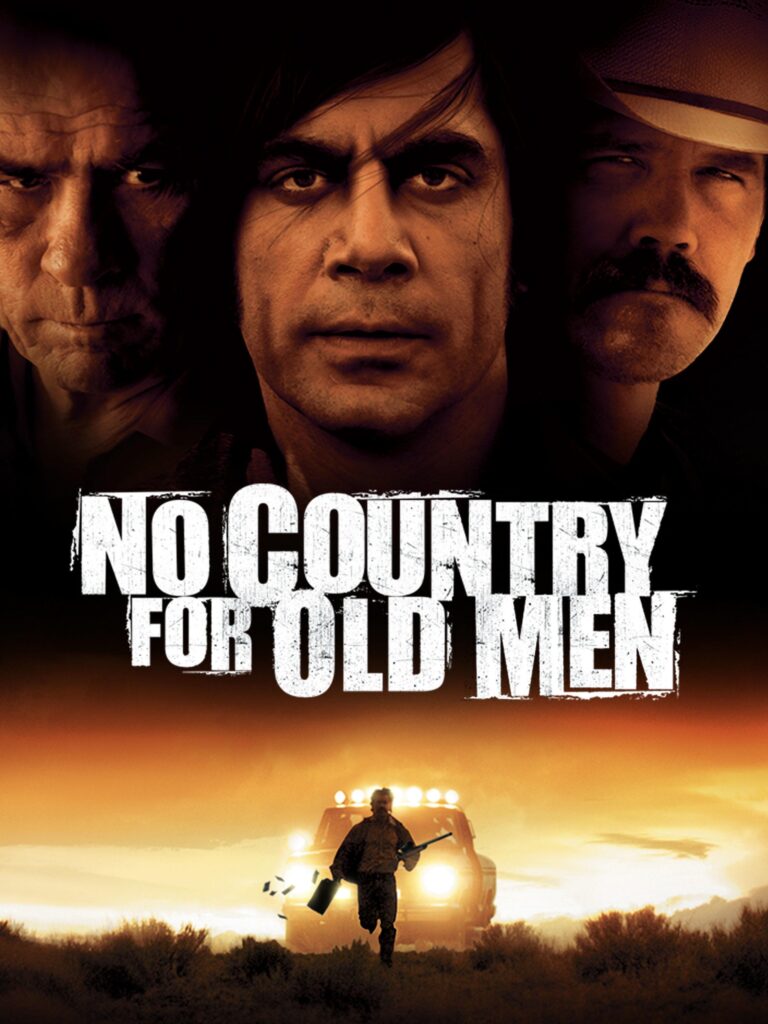
No Country for Old Men, directed by the Coen Brothers in 2007, is a compelling movie adaptation of Cormac McCarthy’s stark Western novel. The film keeps the book’s dismal morality and brutality through visually compelling storytelling and outstanding performances from Tommy Lee Jones, Javier Bardem, and Josh Brolin.
The cat-and-mouse narrative follows Llewelyn Moss as he stumbles into a failed drug deal and flees with a case of cash, chased mercilessly by hitman Anton Chigurh. The Coens heighten the suspense with tightly framed images of the harsh countryside and a growing feeling of dread over Moss.
Javier Bardem as Anton mesmerizes, becoming one of cinema’s most terrifying villains and earning Best Supporting Actor. Tommy Lee Jones plays a grizzled sheriff who is confronted with humanity’s ability for evil. McCarthy’s gloomy narrative approach is brought to life on the screen through careful scene creation, limited speech, and arresting imagery.
No Country for Old Men won the Best Picture Oscar in 2007, as well as accolades for Best Director and Adapted Screenplay for the Coen brothers. It received considerable appreciation for its stunning picture of human depravity in a harsh setting. The film’s adaptation respects McCarthy’s controversial vision while maximizing cinematic assets through superb directing and acting.
14. The Social Network (2010)
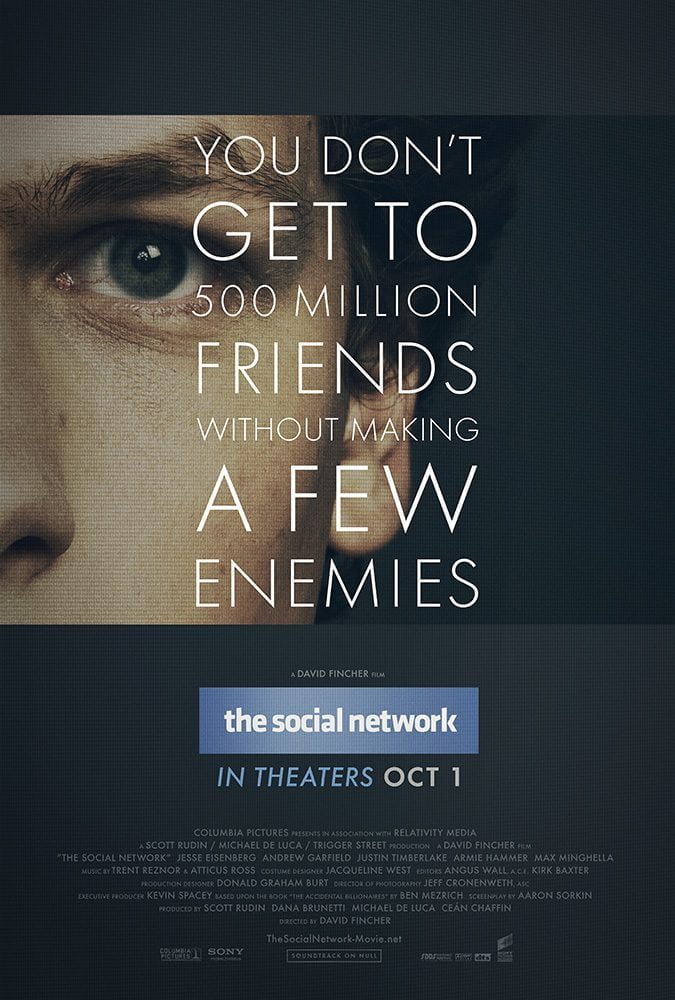
The Social Network, David Fincher’s 2010 historical drama, is a compelling look at Facebook’s contentious origins. The film effectively adapts Ben Mezrich’s book The Accidental Billionaires, with snappy, funny writing by Aaron Sorkin.
As Facebook founder Mark Zuckerberg, Jesse Eisenberg gives an outstanding performance. The documentary follows the site’s spectacular ascent as it confronts former associates who allege stolen intellectual property. Sorkin deftly catches complicated topics, unraveling technical and legal complexities in a fascinating, approachable language.
The Social Network features a great nonlinear narrative, thanks to its brilliant ensemble, which includes Andrew Garfield and Justin Timberlake. This framework heightens tension and mystery, retaining viewers’ attention. With delicacy and complexity, Eisenberg shows Zuckerberg’s ambition, intelligence, and fears.
The Social Network praised for its storyline and performances, offers an engrossing look at the groundbreaking yet contentious birth of a social media behemoth. Fincher and Sorkin expertly adapt this true-life event into an entertaining and thought-provoking film.
15. The Descendants (2011)
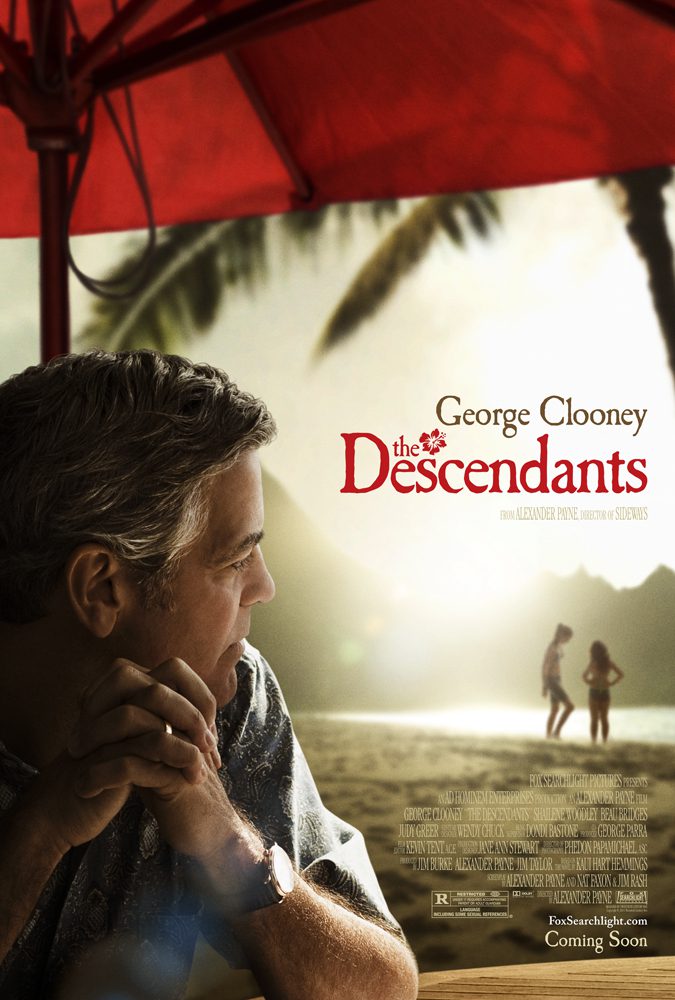
The Descendants, based on Kaui Hart Hemmings’ novel, received critical praise in 2011 for its subtle study of family and bereavement. George Clooney plays Hawaiian lawyer Matt King, who is abruptly forced to parent alone following his wife’s tragedy. He confronts the consequences of her adultery.
Clooney portrays Matt as a flawed but sympathetic character having to cope with his wife’s infidelity and realize he never fully knew her. The Descendants navigates love and grief while deftly mixing humor and tragedy. Payne captures the beauty of Hawaii while contrasting it with the character’s inner torment.
The Descendants won prizes for its performances and direction, including the Golden Globe for Best Drama and the Academy Award for Best Adapted Screenplay for Payne, Nat Faxon, and Jim Rash.
Critics complimented the film’s relevance and sincerity in presenting the complexity of modern living. The Descendants is a moving examination of familial relationships amid tragedy, demonstrating Payne’s skill at integrating emotion with understanding. Its multi-layered storyline infuses adversity with sympathy and wit.
16. Harry Potter (2001 To 2011)
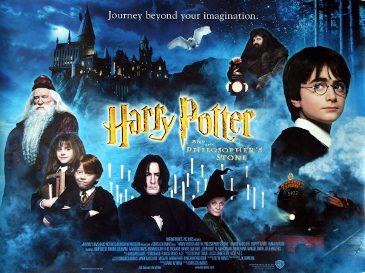
The Harry Potter films, based on J.K. Rowling’s best-selling seven-novel epic, have enthralled a generation. Warner Bros. released the series between 2001 and 2011, chronicling young wizard Harry Potter’s incredible coming-of-age at Hogwarts School of Witchcraft and Wizardry.
The film chronicles the experiences of Daniel Radcliffe’s orphaned protagonist Harry, Emma Watson, and Rupert Grint’s faithful companions Hermione and Ron. They face up against the evil Lord Voldemort, played chillingly by Ralph Fiennes.
The series enjoyed great critical and economic success, showcasing an excellent British ensemble cast that included Alan Rickman and Maggie Smith. The visually stunning films grossed over $7 billion worldwide and were complimented by captivating musical soundtracks.
Harry Potter transcended blockbuster entertainment to become a cultural symbol. It sparked elaborate theme parks, an infinite supply of products, and a lifelong following that spans generations. The series’ magnificent world-building, engaging characters, and teachings of courage and camaraderie continue to have a deep impact.
17. The Hunger Games (2012)
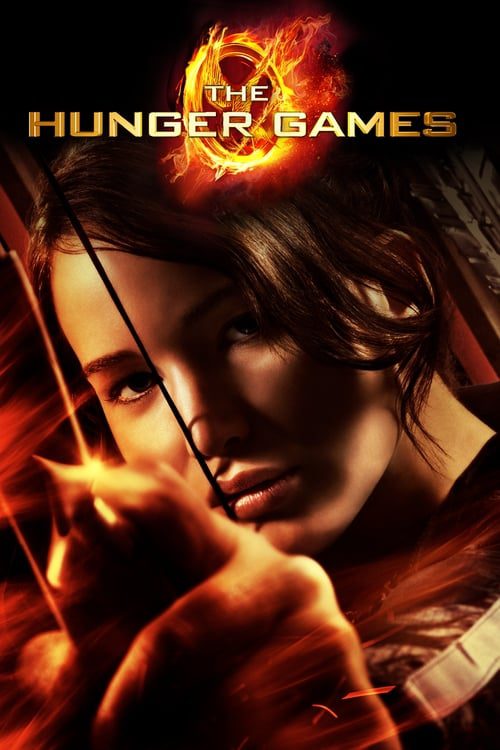
The Hunger Games, a 2012 dystopian sci-fi thriller based on Suzanne Collins’s best-selling 2008 novel, grabbed moviegoers with its high-stakes competition set in a post-apocalyptic future. Jennifer Lawrence stars as Katniss Everdeen in the film, which was directed by Gary Ross.
The rich Capitol oversees 12 downtrodden districts in Panem’s totalitarian society. Each year, a boy and girl from each district are chosen for the grueling Hunger Games, a televised fight to the death. When her sister is selected, Katniss volunteers and enters the perilous arena with fellow District 12 tribute Peeta Mellark.
Katniss navigates lethal barriers erected by the cruel Capitol dictatorship with grit and rebellion, all while retaining her humanity. The Hunger Games received critical acclaim for its engrossing graphics, superb performances, and poignant examination of political oppression.
With a total box office gross of $694 million, the first episode launched a blockbuster four-film franchise that engaged audiences in the gripping world of Panem. Katniss Everdeen became a pop cultural figure, lauded for her strength in the face of adversity. Collins’ story was thrillingly turned into a thought-provoking film experience in The Hunger Games.
18. Arrival (2016)
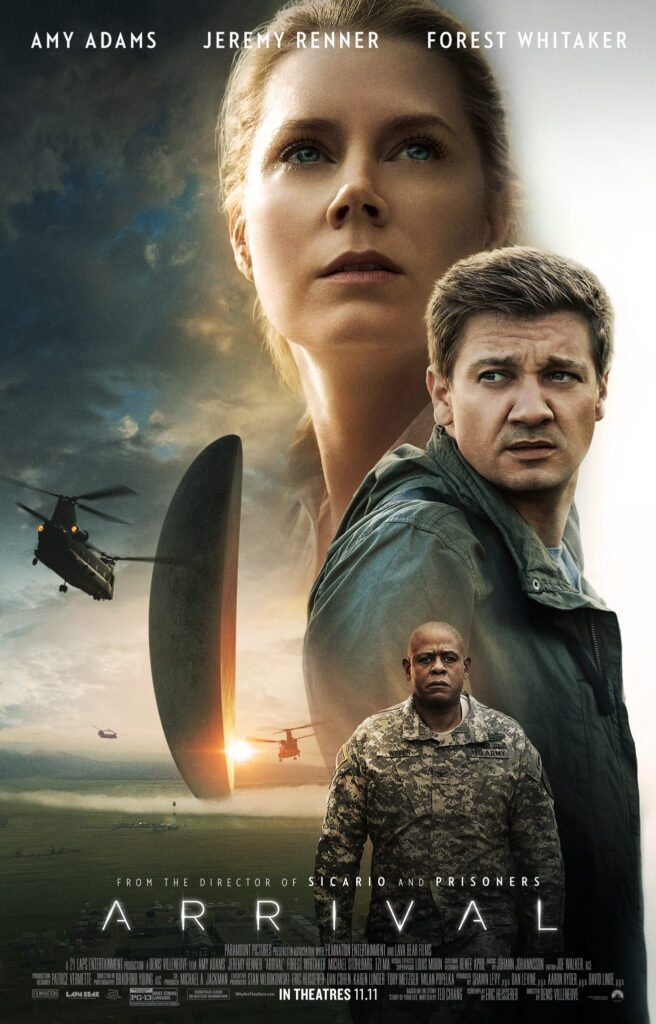
Arrival, Denis Villeneuve’s 2016 science fiction thriller based on Ted Chiang’s novella Story of Your Life, impressed moviegoers with its complex concepts and emotional depth. The film’s sophisticated plot and study of universal issues garnered screenwriter Eric Heisserer accolades.
Amy Adams’ stunning performance as linguistics professor Louise Banks is at the heart of the film. When aliens come to Earth, the US Army enlists Louise to understand their cryptic communication. Louise is immersed in her inner problems and emotional anguish in her part.
Arrival received eight Academy Award nominations, including Best Picture, Best Director, and Best Adapted Screenplay, for its amazing visuals and superb acting. It eventually won Best Sound Editing.
Arrival explores interesting concerns about language, time, communication, and our experience of reality via complex narrative. Louise’s moving journey is a thought-provoking analysis of the human condition. The film’s brilliant combination of a sophisticated sci-fi narrative and great emotional resonance creates an indelible impression.
19. A Star is Born (2018)
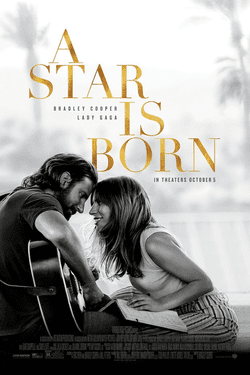
A Star is Born, Bradley Cooper’s 2018 musical drama, captivates as a fresh, fascinating twist on a famous classic. This fourth edition, starring Cooper against Lady Gaga in her acting debut, captivates spectators. Cooper directs and appears in the film, which also stars Gaga, Sam Elliott, and Andrew Dice Clay, in a touching story of love, passion, and self-discovery.
The screenplay has received praise for its engaging story framework, deep character development, and emotive dialogue. A Star is Born, written by Eric Roth, Bradley Cooper, and Will Fetters, digs deeply into universal issues. These include love, addiction, celebrity, and personal hardships, and they strike a nerve that lingers long after the credits have rolled.
Powerful, nuanced performances immerse viewers in the travels of the individuals. In a remarkable performance, Bradley Cooper plays troubled musician Jackson Maine. Lady Gaga has exceptional singing abilities while embodying Ally’s vulnerability and inner power.
The moving, realistic score pays homage to Lady Gaga and Bradley Cooper’s talents. Songs such as “Shallow,” “Always Remember Us This Way,” and “I’ll Never Love Again” have received critical acclaim, earning an Academy Award for Best Original Song.
20. Little Women (2019)
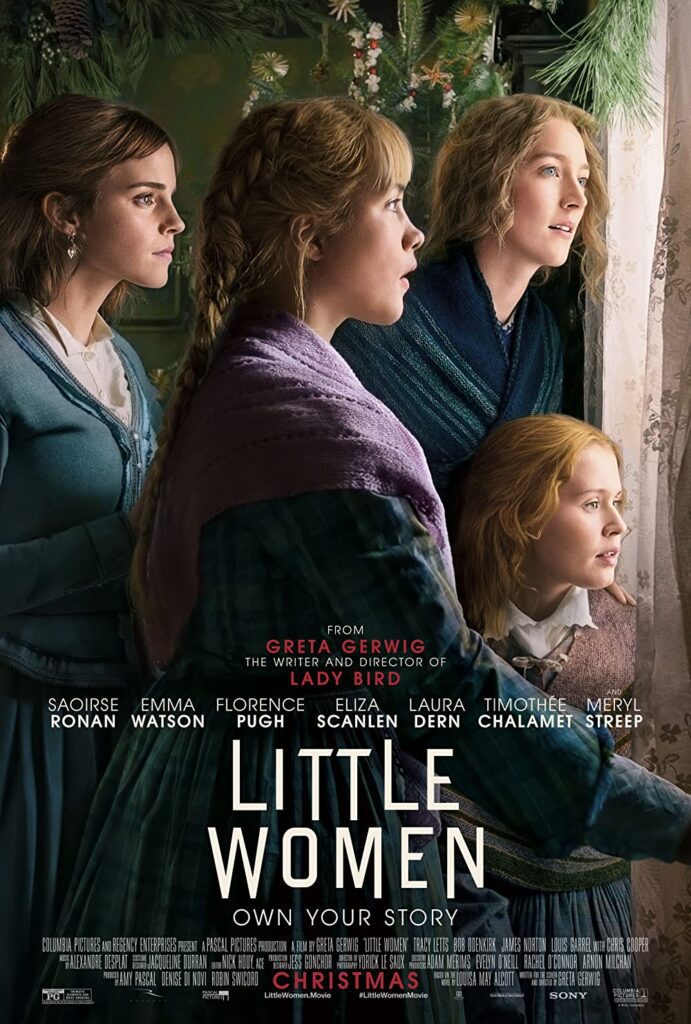
Greta Gerwig’s skillfully adapted script and direction in Little Women (2019) is exemplary. Gerwig finds a deft balance in bringing Louisa May Alcott’s classic 19th-century story into current relevance. She keeps fond memories while instilling razor-sharp current sensibilities.
Gerwig’s non-linear storyline interweaves periods and is anchored by Saoirse Ronan’s impassioned portrayal of aspiring author Jo March. This clever arrangement enhances character settings by adding reflecting resonance. Gerwig’s script succeeds by staying loyal to Alcott’s main themes of family, ambition, and women’s independence.
Stunning visual expertise in costume and production design further immerses spectators in the world of the March sisters. Little Women has received tremendous critical praise because of its intriguing main cast, which includes Emma Watson, Florence Pugh, and Eliza Scanlen. Gerwig exemplifies how properly honoring original material may seem fresh and contemporary.
Little Women stands as a tribute to Gerwig’s talent as both a historical drama and a modern coming-of-age story. She turns the March sisters’ tales into an uplifting and heartfelt on-screen experience. Gerwig’s directing emphasizes timeless truths about sisterhood and self-fulfillment by connecting history and the present. Little Women is still relevant nearly a century after Alcott wrote it.
21. Jojo Rabbit (2019)
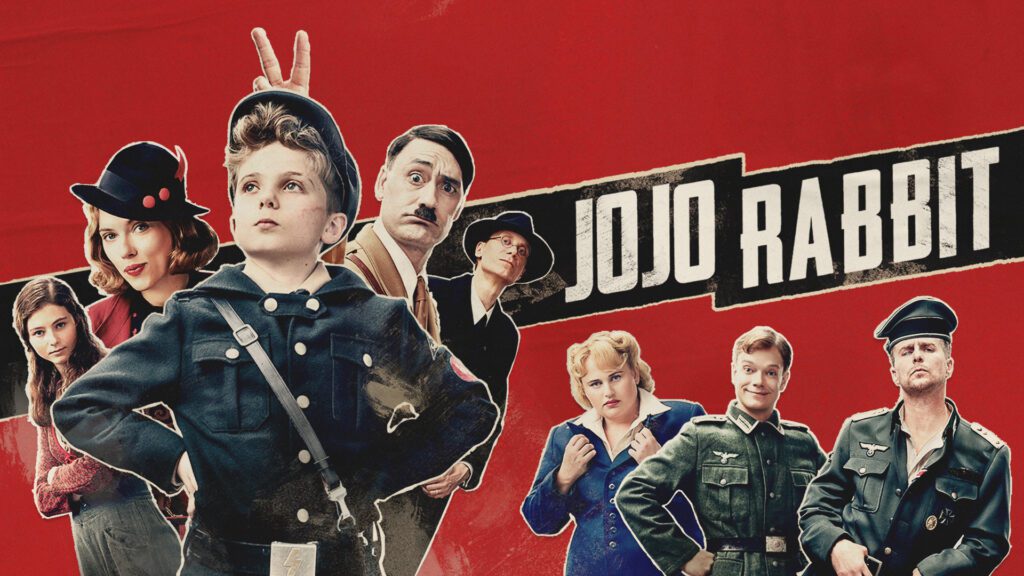
Taika Waititi’s 2019 satire film Jojo Rabbit offers a daring, imaginative perspective on adolescence in Nazi Germany. Waititi’s Oscar-winning script, co-written with Christine Leunens, expertly combines comedy and tragedy to deliver a powerful message about empathy triumphing over prejudice.
The film, which follows a young Jojo in the Hitler Youth who finds his mother sheltering a Jewish girl, navigates tonal issues with subtle finesse. Waititi achieves a careful balance in which the comedic elements never overpower the serious subject matter. This one-of-a-kind combination creates the film’s thought-provoking take on WWII.
The screenplay creates beautifully rendered, accessible characters such as Jojo, the imperfect yet likable protagonist. His path from faulty indoctrination to compassion illuminates the perilous attraction of blind allegiance and bigotry.
Jojo Rabbit praised for facing the ramifications of hatred via a daring humorous perspective, uses satire to re-examine a painful historical period. Waititi’s screenplay talent and directing elevate the film to a unique, heartbreaking watching experience.
22. The Irishman (2019)
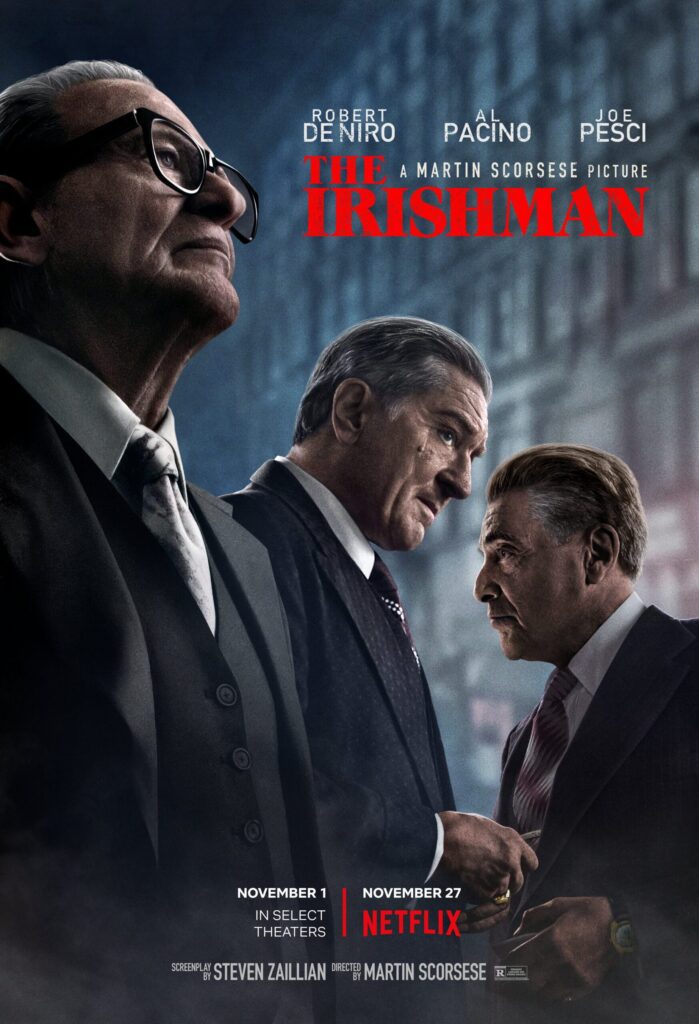
Martin Scorsese’s next crime epic The Irishman expertly adapts Charles Brandt’s novel I Heard You Paint Houses for the big screen. The multi-layered tale is masterfully woven together by Steve Zaillian’s Oscar-nominated script, which has received plaudits for its sensitive character analysis.
The film, starring Robert De Niro as mafia hitman Frank Sheeran, follows his life journey through the criminal underground. Joe Pesci and Al Pacino star as mobsters Russell Bufalino and Jimmy Hoffa, respectively. The de-aging visual enhancements allow the actors to play their characters convincingly over decades.
Scorsese’s daring directing and Zaillian’s witty language bring the complex narrative to life. Flashbacks are used in the nonlinear framework to shed light on Frank’s intentions and the wide-ranging effects of his actions. The Irishman takes viewers deep inside the minds of the protagonists, exploring topics like morality, loyalty, and treachery.
The Irishman, which lasts for more than 3 hours, is a magnificent piece of direction. This criminal drama is transformed into an instant classic with a strong emotional resonance because of Scorsese’s brilliant narrative tactics, stellar performances, and Zaillian’s painstaking writing.
23. Nomadland (2020)
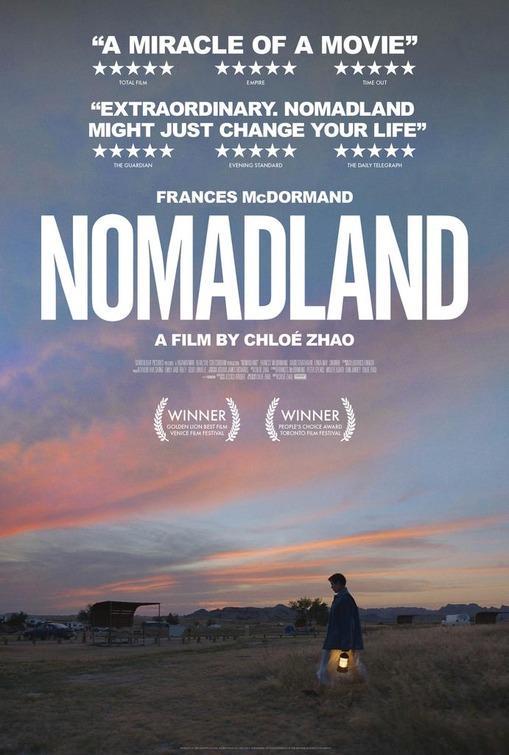
Nomadland, Chloé Zhao’s 2020 play, gave a beautiful depiction of nomadic existence in the American West. The Oscar-winning film, based on Jessica Bruder’s nonfiction book, casts a compassionate light on modern-day nomads. Zhao’s directing and Joshua James Richards’ evocative cinematography immerse viewers in the world of the wanderers.
Frances McDormand stars as Fern, a woman who embraces a rootless living after experiencing financial trouble. The personal character portraits in the film give insight into resilience and finding purpose amid uncertainty. Beautiful scenery immerses viewers in Fern’s loneliness and desire for freedom on the open road.
Nomadland evokes the abandoned villages and nomadic spirits of the modern American frontier in a realistic visual style and thoughtful tone. Fern’s anguish, inner strength, and humanity are channeled via McDormand’s sophisticated performance. Zhao’s skill as a storyteller garnered her Academy Awards for Best Director and Best Picture.
24. Ma Rainey’s Black Bottom (2020)
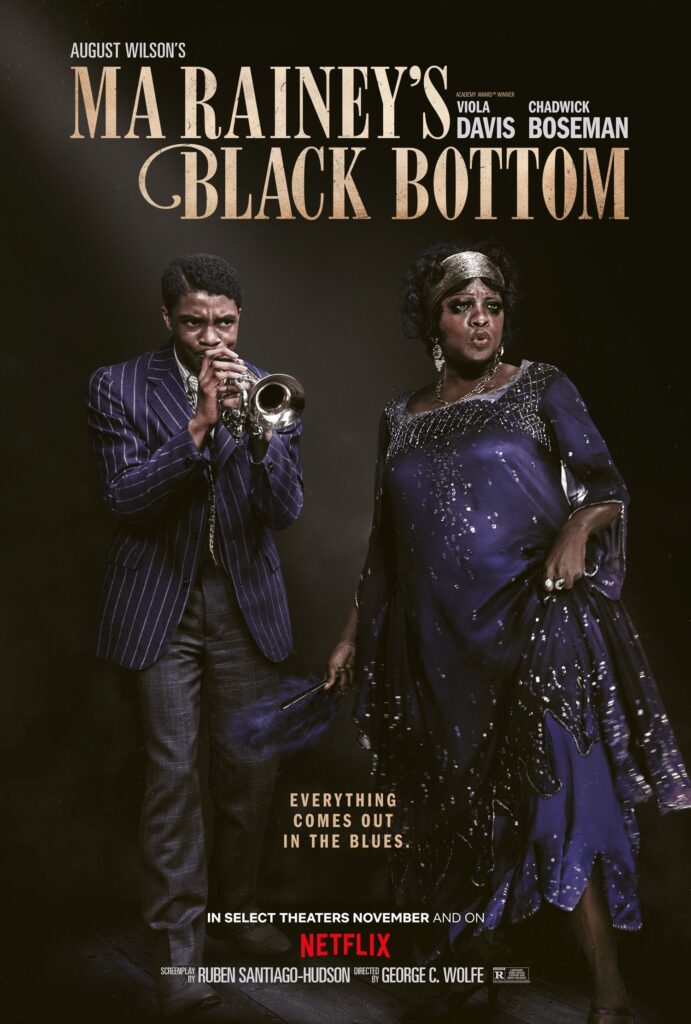
Ma Rainey’s Black Bottom, George C. Wolfe’s 2020 drama, has amazing performances and August Wilson’s incisive writing to illustrate 1920s Black lives. The film, based on Wilson’s play, explores racial tensions and creative expression in 1927 Chicago.
Viola Davis gives an outstanding lead performance as groundbreaking blues singer Ma Rainey, conveying her tenacity and perseverance. In his final appearance as trumpeter Levee, Chadwick Boseman received posthumous acclaim for his dramatic portrayal of ambition and tragedy.
Wilson’s dramatic speech is brought to life on screen by the cast’s emotive performances. The film sheds light on the music industry’s hierarchies and power inequalities of the time. Ma Rainey, as a Black artist, has to deal with white producers who want control.
Ma Rainey’s Black Bottom received Academy Award nominations, including Best Actor for Chadwick Boseman, for its relevant issues. Wolfe and Wilson shed emphasis on underrepresented Black tales, emphasizing the necessity of empowering disadvantaged perspectives. The film left a significant cultural legacy as a bittersweet celebration of superb performance and writing.
25. Dune (2021)
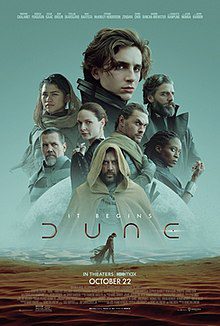
Denis Villeneuve’s sci-fi epic 2021 Through breathtaking graphics and rich storytelling, Dune immerses spectators in Frank Herbert’s sprawling novel. The adaptation is praised for its beautiful photography and spectacular effects, which expertly bring the original material’s rich world-building to life.
Timothée Chalamet’s moving portrayal of Paul Atreides, a young man navigating his fate on the harsh desert planet of Arrakis, lies at the heart of the film’s emotional core. The script condenses the novel’s sprawling plot while keeping the novel’s broad themes of power, morality, and the environment.
Powerhouse actors such as Rebecca Ferguson, Oscar Isaac, and Zendaya play nuanced characters with complicated motivations and connections. The narrative addresses thought-provoking topics that connect deeply within the visually striking extraterrestrial settings.
Dune has been praised for its visual grandeur as well as its conceptual complexity, and it symbolizes a victory in successfully adapting a dense literary work to the screen. Villeneuve and the authors strike a careful balance between spectacle and content, creating an adaptation that appeals to both aficionados and beginners to Herbert’s dense universe.
What makes Adapted Screenplays different from Original Screenplays?
Adapted and original screenplays require different creative processes and methods of writing. Screenplays need the adaptation of existing source material for the visual medium, whereas original screenwriting requires the creation of entirely new storylines.
Adapted screenplays necessitate comprehending the source material’s fundamental components and expressing its essence cinematically. For an interesting, loyal adaptation, this entails compressing or extending the story, rethinking scenes, and changing tempo. Adaptations capitalize on pre-existing fan bases while successfully reconverting the storyline.
Original scripts provide authors with more creative leeway to explore novel ideas unrestricted by earlier works. However, developing compelling unique stories from the start calls for a solid grounding in speech, structuring, character development, and visual narrative approaches. Although original works lack built-in audiences, viewers can nevertheless be drawn in by appealing execution and promotion.
Both need mastery of screenplay techniques such as dynamic characters, gripping narrative arcs, and visual storytelling. Adapted works adapt existing tales for the film, whereas original screenplays create whole new cinematic experiences. The screenwriter’s ultimate objective is to create an effective script that captivates people via skilled storytelling.
Evolution of Adapted Screenplays
- Early Days: Direct Page-to-Screen Translations
Originally, adapted scripts were just literal transcriptions of novels for the movie medium. Filmmakers failed to adapt stories to the specific narrative constraints of the screen.
- Incorporating Voice-Over Narration
The use of voice-over narration to portray interior thoughts or background facts was an innovation, as seen in classic film noir such as Double Indemnity (1944). This strategy quickly became a standard in modified scripts.
- Non-Linear Storytelling with Flashbacks
Films such as Pulp Fiction (1994) and Memento (2000) showcased adapted scripts that used flashbacks and nonlinear plots. With elaborate, unique story structures, these gadgets captivated viewers.
- CGI Bringing Fantasy Worlds to Life
CGI and other digital breakthroughs enable the adaptation of fanciful source material that was previously unfilmable. The Lord of the Rings and Harry Potter films were both successful in bringing imagined worlds to life on the big screen.
- Creative Interpretations, Not Direct Translations
Modern adapted scripts frequently reinterpret or differ from the original material while keeping its core. Gone Girl (2014) is an example of using artistic license rather than a literal translation.
Conclusion
Adapted screenplays have allowed timeless stories to be reinterpreted on the silver screen throughout film history. Script adaptations have transformed books into engaging cinematic plots, from classics like The Godfather and To Kill a Mockingbird to recent bestsellers like The Social Network.
The thorough translation procedure necessitates keeping the spirit of the source text while embracing the filmmaker’s unique vision. It is necessary to strike a balance between respecting the original text and creating an interesting cinematic experience. Technological advancements continue to open up new avenues for innovation in adapted works.
The future of adapted scripts promises intriguing artistic horizons and progress. Whether adapted from a play, novel, or other source, these screenplays stand as a distinct storytelling art form. They allow spectators to revisit familiar locations and people via a cinematic viewpoint. The gripping force of expertly adapted storytelling assures their place in the pantheon of great cinema.
Frequently Asked Question
What defines an adapted versus original screenplay?
Original screenplays are wholly new works, while adapted scripts are based on existing source material like books, plays, etc.
Can adaptations surpass the source?
Yes, skilled adaptations can improve the source by translating the best elements into an engaging cinematic story.
What qualities make a strong adapted screenplay?
Great adaptations distill the essence of the source while standing alone as compelling films. They balance loyalty and necessary changes.
How faithful must adaptations be?
Faithfulness levels vary. Priority is capturing the heart of the source, though some stick closely while others take liberties.
What are the challenges in adapting books to film?
Condensing stories for runtime, visualizing descriptions, and altering characters/plots for the screen present obstacles.
What are examples of adapted films that diverged yet succeeded?
The Godfather, Blade Runner, and The Shining – these took creative license and still worked beautifully.
How crucial is source material to adaptation success?
Source material is important but factors like screenwriting skill and directorial vision also play key roles.
Can adaptations succeed without author involvement?
Yes, but author input can aid faithfulness and execution.
How do you compare adapted screenplay quality across genres/eras?
Analyze loyalty to the source, character/dialogue strength, story effectiveness, and genre/period needs.
What are some of the most influential adapted screenplays?
The Godfather, One Flew Over the Cuckoo’s Nest, The Shawshank Redemption – beloved for loyalty, characters, and storytelling.











